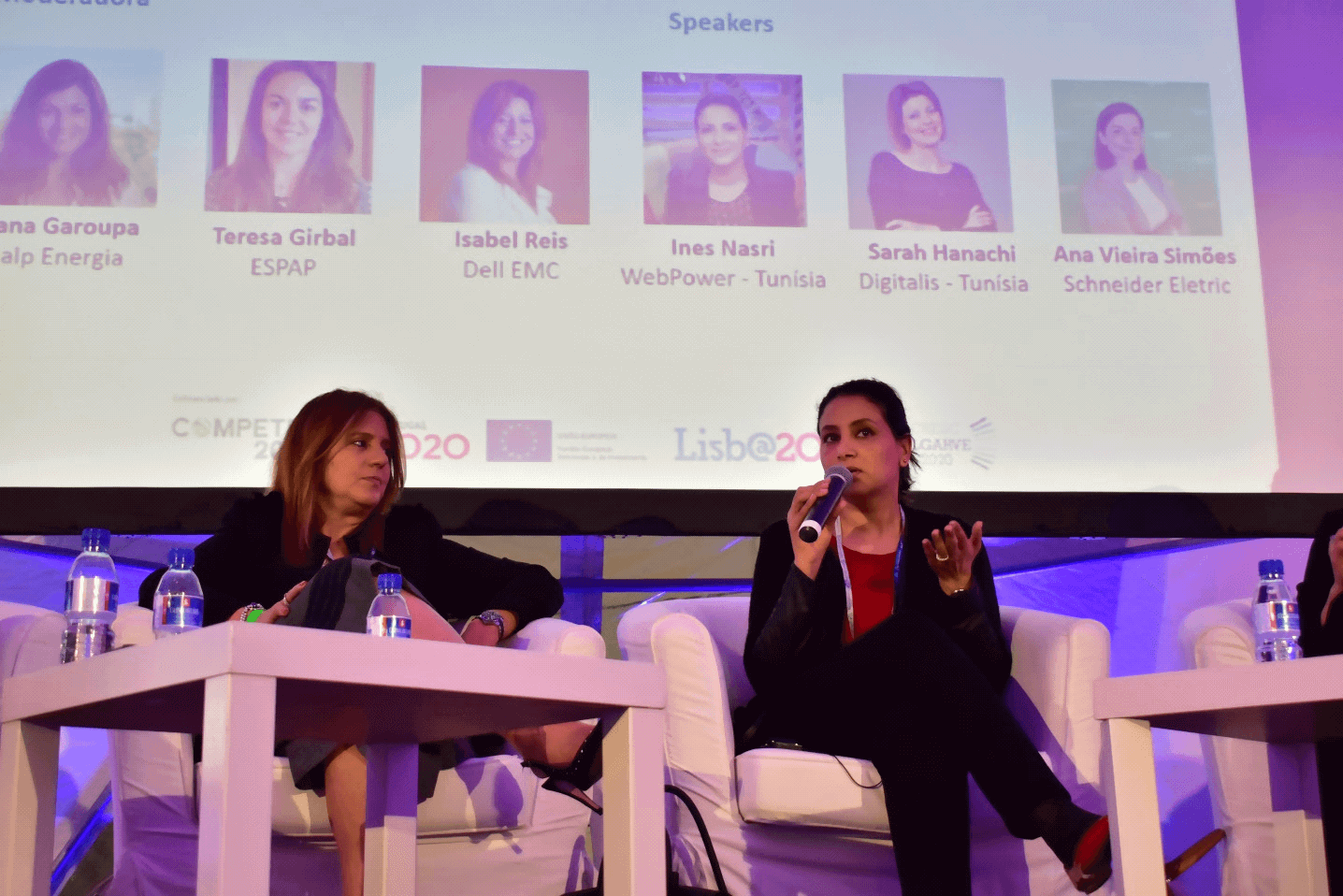Top Women in Technology Panel
The city of Lisbon has hosted Portugal Smart Cities Summit, where it gathered various experts and industry leaders from all over the world in the country’s biggest conference ever to discuss utilizing the exponential growth of technology in the digital transformation of cities.A significant portion of the conference was dedicated to discussing the critical role women continue to play in technology, enhancement of societies, and innovation.
The event took place from May 21 to May 23, 2019, in the International Fair of Lisbon in Portugal, and it received wide support from both top-rank governmental figures and industrial/tech giants, such as Nissan, IBM, and Cisco.
The future of our cities has been greatly shaped through the contribution of women in all fields, and Ines was present in the summit to shed some light to attendants about the nature of women’s contribution, and how to better prepare upcoming and existing generations of women and girls for STEM careers. Ines discussed how we need to invest in their journey to become more adept leaders through well thought out training and support, which in turn guarantees our ongoing advance technologically, socially, and economically.
On May 23, from 9:30 to 11:00, Ines, founder/manager of WebPower, was invited to be part of Top Women in Technology Panel, powered by NOS, which discussed the role of women in the cities of the future. The panel was moderated by JoanaGaroupa Marketing and communication Director at Galp. Ines was accompanied by Teresa Girbalthe Vice-President of ESPAP, Isabel Reis who is the general director of Dell EMC, Sarah Hanachi from Digitalis, and Ana Vieira Simõeswho is the Human Resources Country Manager at Schneider Electric.

Ines explained the very roots of the challenges women face, and how it all starts at childhood, as it has been accepted in societies to raise girls to become mothers and wives. At the same time, they diminish the value of their pursuit of careers and ambitions. This is a systematic approach to shaping young minds completely contradicted by what happens with future men, as we try to shape them into successful and motivated individuals from young ages. Girls aren’t encouraged to play with construction toys and skill-oriented games; instead, we drown them in baby dolls. Ines discussed the importance of reshaping our approach to educating girls.
Ines also discussed how it is important for girls and women to continue to focus on their own potential even if they’re engaged in a relationship, and how their choice of partner can make all the difference in thriving in both their careers and personal lives.
Ines also compared the characteristics and documented efficacy of feminine leadership and management to the masculine one, and how feminine management models tend to become more people-oriented and cooperative when compared to the autocratic and task-oriented approach seen in masculine models of management. It is increasingly proven that the feminine model gets better results when it comes to both achieving teams’ goals and levels of satisfaction in employees, regardless of their gender.



